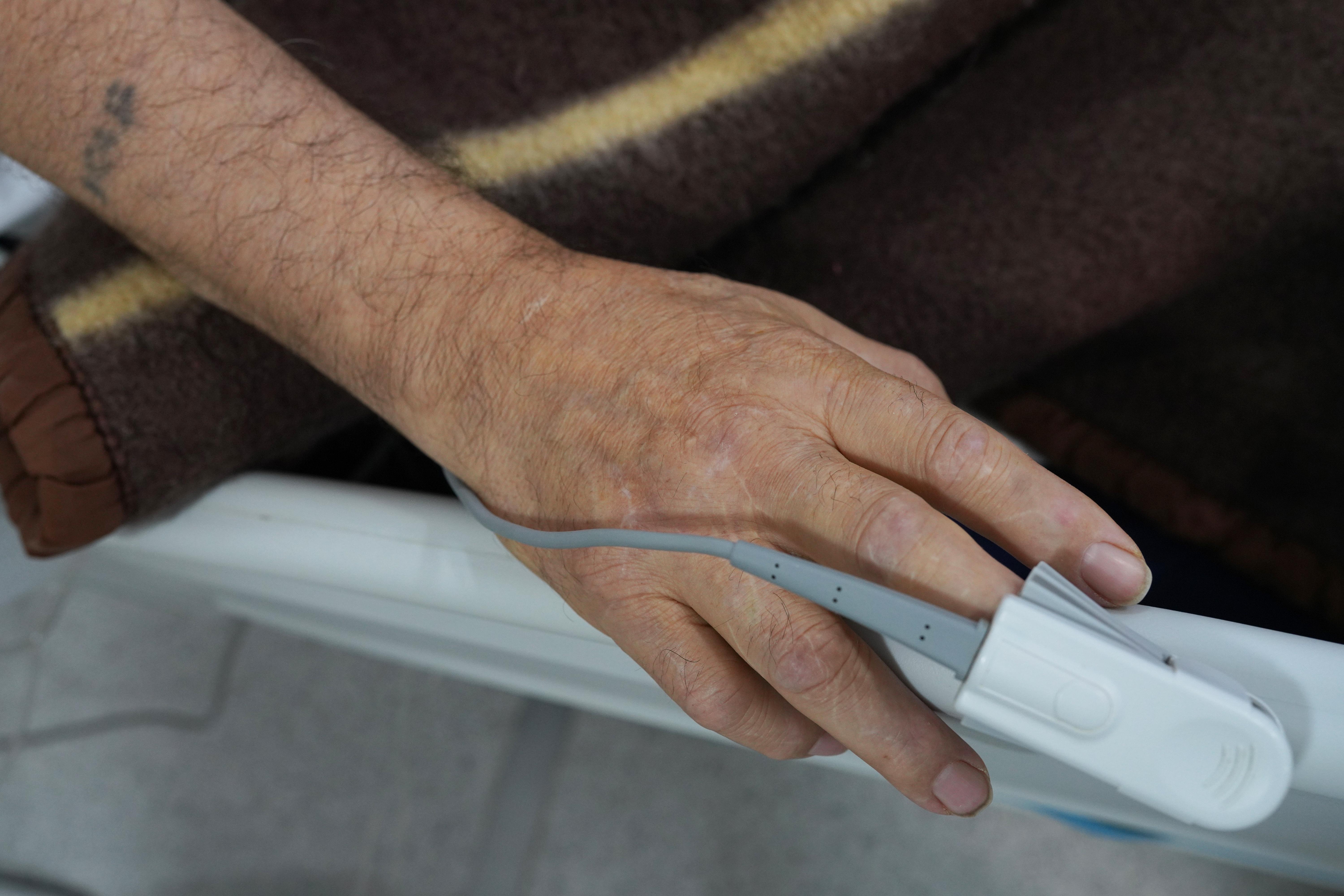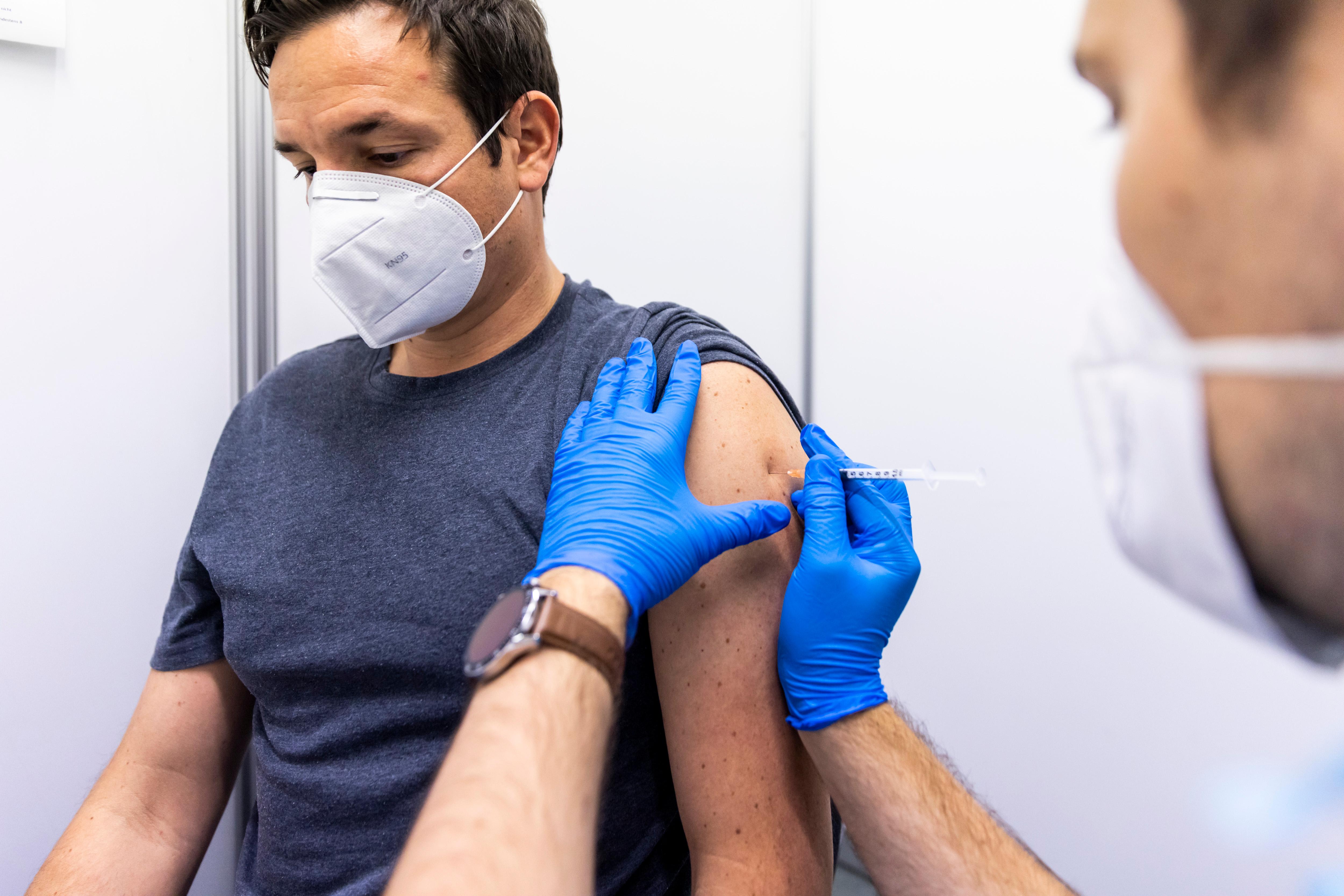Is Regeneron's COVID-19 Drug Better Than the Vaccine?
The FDA authorized a COVID-19 drug cocktail from Regeneron, but that doesn't mean it's better than the vaccine.
Nov. 8 2021, Published 1:46 p.m. ET
The biopharmaceutical company and COVID-19 treatment creator Regeneron has released updated data on its single-dose antibody cocktail. How does it compare with vaccines in fighting the coronavirus?
As vaccine mandates heat up, the latest clinical data tell us which treatment path is the best bet for Americans.
Clinical data reveal long-term efficacy of Regeneron
On Nov. 8, Regeneron released clinical data about its monoclonal antibody cocktail injection. The drug is currently approved to treat people who already have the virus, not to prevent people from getting it in the first place.
According to the research, in the 2–8 months following initial treatment, a single dose of Regeneron's COVID-19 drug reduces the likelihood of an uninfected patient contracting the virus by 81.6 percent.
Regeneron stock is responding to the news
Shares for Regeneron Pharmaceuticals (NASDAQ:REGN) are up a marginal 0.65 percent in the first half of trading on Nov. 8. The shift comes after a sharp drop in market value the previous week during which REGN stock underperformed against COVID-19 drug competitors.
Comparing COVID-19 vaccine efficacy
The Pfizer-BioNTech vaccine was the first to come on the scene. Pfizer's phase three clinical data from December 2020 showed the shot series having 95 percent efficacy for preventing reinfection. In a six-month period, Pfizer's efficacy is around 91.3 percent. Pfizer is also 95.3–100 percent effective in preventing serious disease.
Moderna uses mRNA for its COVID-19 vaccine. Moderna's phase three clinical data from December 2020 showed the shot series having 95 percent efficacy for preventing reinfection. In a six-month period, Moderna's efficacy is around 90 percent. Also, Moderna's shot is 95 percent effective in preventing serious disease.
More recent studies show Moderna is more effective than Pfizer. According to research on health care workers in The New England Journal of Medicine, Moderna prevented symptomatic illness in 96.3 percent of participants, while Pfizer prevented symptomatic illness in 88.8 percent of participants.
The single-shot Johnson & Johnson vaccine has the lowest vaccine efficacy. Johnson & Johnson's data showed the shot having 72 percent efficacy for preventing reinfection. Meanwhile, it has an 86 percent efficacy for preventing serious disease.
Is Regeneron or the vaccine better?
Right now, the FDA has only approved Regeneron for high-risk patients who have been exposed to COVID-19 and to treat those who have recently tested positive for the virus.
Efficacy rates alone prove that Regeneron isn't as effective as the Moderna or Pfizer vaccines. The biotech company has explicitly stated that it's "not a substitute for vaccination against COVID-19."
Regeneron's cocktail, made of two monoclonal antibodies (casirivimab and imdevimab), is called REGEN-COV. The drug isn't used as a preventative but as a tool for combatting COVID-19 infections as they occur. Experts agree that it shouldn't be considered a replacement for the vaccine. Most vaccinated people will be able to avoid COVID-19 drugs altogether in the event of a breakthrough case.
Also, Regeneron is extremely expensive. It costs $2,100 per dose, while the U.S. is paying about $15 for the Moderna vaccine.


